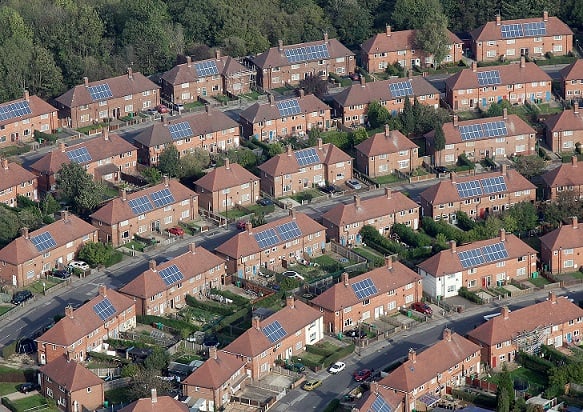
Any potential increase in energy bills caused by low-carbon policies could be wiped out by government-backed support of energy efficiency programmes which would simultaneously reduce fuel poverty by as much as 75%.
In a landmark report published today, the Committee on Climate Change (CCC) has claimed that any increase in domestic energy bills between 2016 and 2030 could be “more than offset” by such improvements.
The CCC also revealed that energy bills actually fell between 2008 and 2016 owing to a 17% reduction in overall electricity use, at least in part attributable to wider deployment of energy efficiency technologies.
By 2030 the government’s carbon watchdog has forecasted that the cost of climate policies added to consumer bills could rise by between £85 and £120 as the government legislates to meet the fifth carbon budget.
Such an increase would mean that low carbon policies would make up somewhere between £190 and £225, roughly 9% of the total average energy bill.
However the government's climate watchdog has estimated that households could save up to £150 each year by installing energy efficiency improvements, a saving which would even increase if wholesale gas prices fluctuated into the 2030s.
Not only that, but if the government could successfully target insulation and low-carbon heat installations at those suffering from fuel poverty, around three-quarters of those households could be lifted from that threat.
The CCC’s report is timely considering the government has yet to publish its eagerly anticipated emissions reduction plan which is expected to outline precisely how it intends to meet the fifth carbon budget, ratified by former energy secretary Amber Rudd last year as one of her last acts in the role.
While much of today’s report has focused predominantly on the impact on household and business energy bills, it also discusses the need for considerable amounts of new, low-carbon power generation to come on-stream throughout the 2020s in order to meet the CCC’s budgeted scenarios which call for 75% of generation to be low-carbon by 2030.
Expected retirements, changing demand and ongoing generation from older plants mean that an additional 45% of new generation will be required to come on-stream throughout the 2020s at an average premium of ~£43/MWh compared to the wholesale gas price.
The CCC has broken this down to comprise;
- One-third through offshore wind deployment throughout the 2020s, as contracted under forthcoming CfD rounds, at an average premium of £52/MWh
- One-sixth through a commercialisation programme for carbon capture and storage at a premium of £51/MWh
- The remaining half from mature low-carbon generators such as solar PV, onshore wind and nuclear at a premium of £36/MWh
The UK would therefore require significant deployment of utility-scale solar PV throughout the 2020s, despite the government continuing to prohibit the technology from competing in auctions.
Iain Wright, chair of the business, energy and industrial strategy select committee, said it was important that new sources of energy are brought into play and that these sources must include renewables.
“Given that energy capacity needs to be replaced, the big energy companies are too quick to blame green policies from government for unjustifiable price increases which hit their most loyal customers hardest. These consumers should heed the report’s advice and switch suppliers.
“The government must also be mindful of the burden that decarbonisation policies can place on businesses and ensure that they are able to remain competitive. There are enormous opportunities in the UK moving to a low carbon economy and ministers must take maximum advantage of these by making the transition integral to its Industrial Strategy,” he added.
